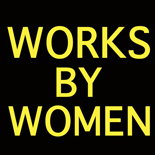Interview: Sherry Kramer
 One Old Crow Productions, 2013 New York Innovative Theatre Award Nominees for Outstanding Revival of a Play for their site-specific production of Sam Shepard’s Cowboy Mouth, is presenting a revival of Sherry Kramer‘s David’s RedHaired Death through November 10th at LA SALA in Brooklyn. Ms. Kramer’s work has been seen at theater’s across the country and abroad, including the Humana Festival at the Actors Theatre of Louisville, Yale Repertory Theatre, Soho Rep, Ensemble Studio Theatre, New York’s Second Stage, Woolly Mammoth, and The Theater of the First Amendment. She is a recipient of NEA, New York Foundation for the Arts and McKnight Fellowships, the Weissberger Playwriting Award, and a New York Drama League Award (What A Man Weighs), the LA Women in Theater New Play Award (The Wall of Water), and the Jane Chambers Playwriting Award (for David’s RedHaired Death).
One Old Crow Productions, 2013 New York Innovative Theatre Award Nominees for Outstanding Revival of a Play for their site-specific production of Sam Shepard’s Cowboy Mouth, is presenting a revival of Sherry Kramer‘s David’s RedHaired Death through November 10th at LA SALA in Brooklyn. Ms. Kramer’s work has been seen at theater’s across the country and abroad, including the Humana Festival at the Actors Theatre of Louisville, Yale Repertory Theatre, Soho Rep, Ensemble Studio Theatre, New York’s Second Stage, Woolly Mammoth, and The Theater of the First Amendment. She is a recipient of NEA, New York Foundation for the Arts and McKnight Fellowships, the Weissberger Playwriting Award, and a New York Drama League Award (What A Man Weighs), the LA Women in Theater New Play Award (The Wall of Water), and the Jane Chambers Playwriting Award (for David’s RedHaired Death).
She spoke with Works by Women about the theater world outside New York and how David’s Redhaired Death came to be.
WORKS BY WOMEN: How did you first conceive of DAVID’S REDHAIRED DEATH?
SHERRY KRAMER: I was still in my 20’s, and I was the playwright in residence at a theatre in Florida, something set up by New Dramatists. I mention my age, because when the Artistic Director of the theatre gave me a book—The Aquarian Conspiracy –and said, as part of my residency he wanted me to adapt it into a play–I read it, didn’t want to adapt it, and I didn’t even blink an eye. I just told him i was going to write another play during my residency instead. I really didn’t think it was an issue, after all, the adaptation wasn’t part of the original deal. I was so naive. If I’d done that adaptation, I’d probably be rich now. Of course, the Artistic Director refused to look at David’s RedHaired Death once I’d written it, or give me a reading of it, or support me. I wrote it while doing my other duties, which were leading the audience discussion after the two shows in rep: Agnes of God and American Buffalo. I imagine you can’t find an influence of either of these plays on David’s RedHaired Death. I know I can’t! Still, it is lovely to hear a few plays over and over again, as I did that season. The play itself is a convergence too of things in my life and discovering The Hour of Our Death by Phillipe Aries in a small library in Springfield, Missouri. I loved going to libraries, and walking around until a book selected me. This extraordinary book did. I’ve since discovered that it’s a famous, landmark study on death. It certainly was an important book for me.
WBW: Your work has been produced in NYC and around the country. What have you learned and/or taken away from your experiences around the country?
SK: I’ve learned that there are people making amazing theatre everywhere, theatre that is essential for the life of our communities. But I’ve also learned that it’s hard making theatre that matters. There aren’t enough cities where theatre is allowed to be part of the heart and soul of the lives of its citizens. There are these gatekeepers–the critics, the McDonalds mentality of most of the big regional theaters–who tend to create this fiction about the kind of theatre that our audiences want. It’s self-perpetuating at a certain point.
WBW: What’s next for you?
SK: A production of my newest play, How Water Behaves, a farce about philanthropy. And hopefully a production someday of The Bay of Fundy, also a play about philanthropy. I guess I’ll have to write a third play about philanthropy, to make it a full set!
WBW: What are the challenges facing women in American theater?
Things are better for women playwrights and directors than they used to be. But things are not good enough. I don’t know if they will really get where they should be in my lifetime.
WBW: What gives you hope for women in American theater?
SK: I’ve seen the degree of passion, commitment, and talent that theatre makers–women and men–bring to create theatre against all odds, in the face of everything small. There is a lot to celebrate, everywhere I go. I teach full time now–and the kids are so alive with what theatre can mean. What’s not to hope for? The thing about theatre, about truth, about sex, about anything good–you can’t get enough of it, no matter how good it is and how much you get of it. In fact, the better it is, the more you want of it. I know I do!
For tickets and more information, visit One Old Crow Productions.
